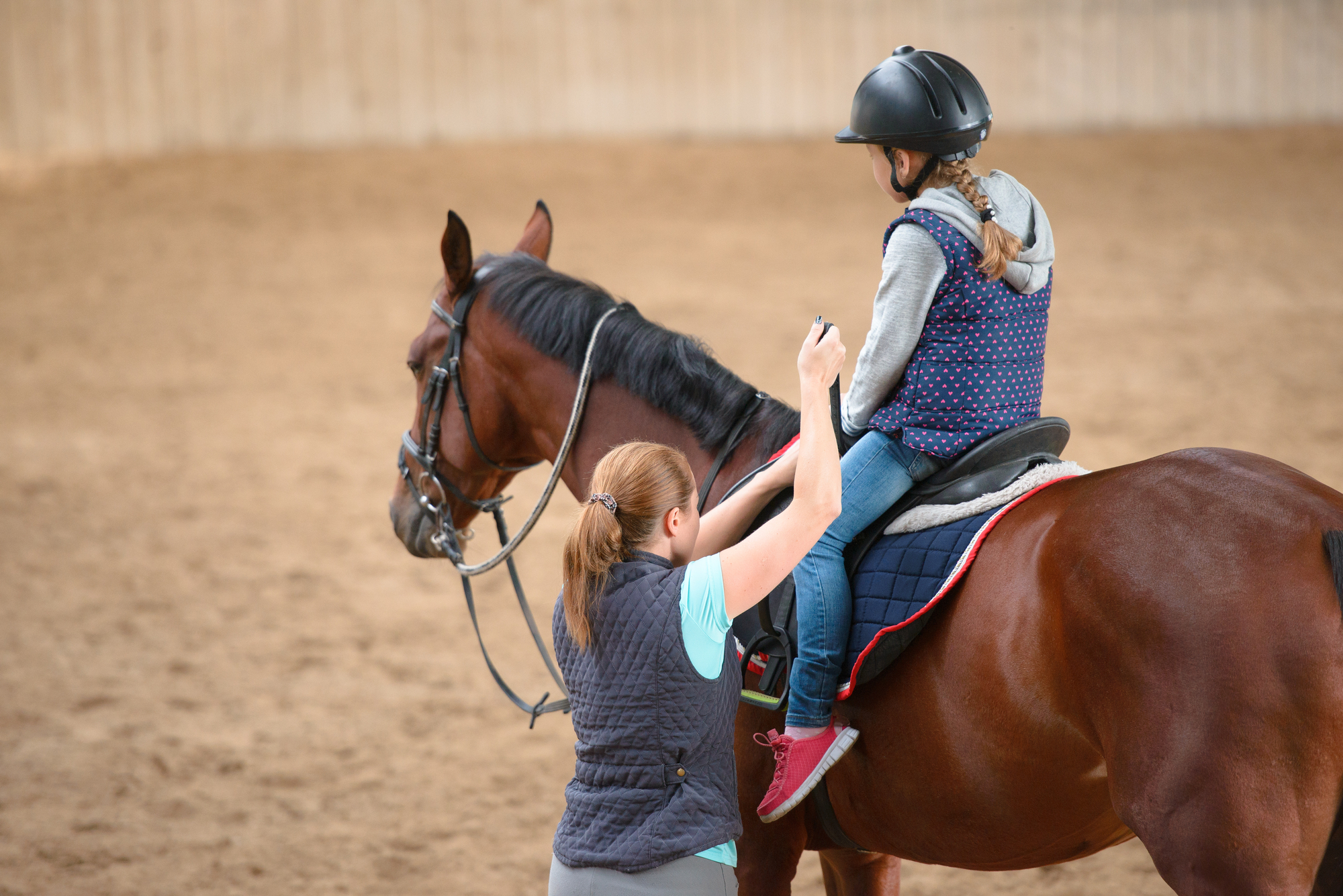Are you thinking about getting your child into horseback riding? It can be a great activity that not only provides exercise but also teaches valuable skills and lessons. But how do you choose the right horseback riding instructor for kids? In this article, we’ll discuss what to look for when selecting an instructor and how to ensure that your child has the best learning experience possible. So, if you’re ready to learn more, let’s dive right in!
When it comes to choosing a horseback riding instructor for kids, there are a few key factors to consider. First and foremost, you’ll want to find an instructor who is experienced and knowledgeable about working with children. They should have a good understanding of how to communicate effectively and create a positive and safe learning environment. Additionally, you’ll want to consider the instructor’s teaching style and approach. Some kids may thrive with a more structured and disciplined approach, while others may benefit from a more laid-back and fun atmosphere. By taking these factors into account, you can ensure that your child is paired with an instructor who will meet their individual needs and help them develop their horseback riding skills.
How to Choose the Right Horseback Riding Instructor for Kids
If your child has expressed an interest in horseback riding, finding the right instructor is crucial to their safety and enjoyment of the sport. A qualified and experienced instructor can help your child develop their skills, boost their confidence, and provide a positive and enriching riding experience. This article will guide you through the process of selecting the right horseback riding instructor for your child, ensuring a safe and rewarding journey into the world of horse riding.
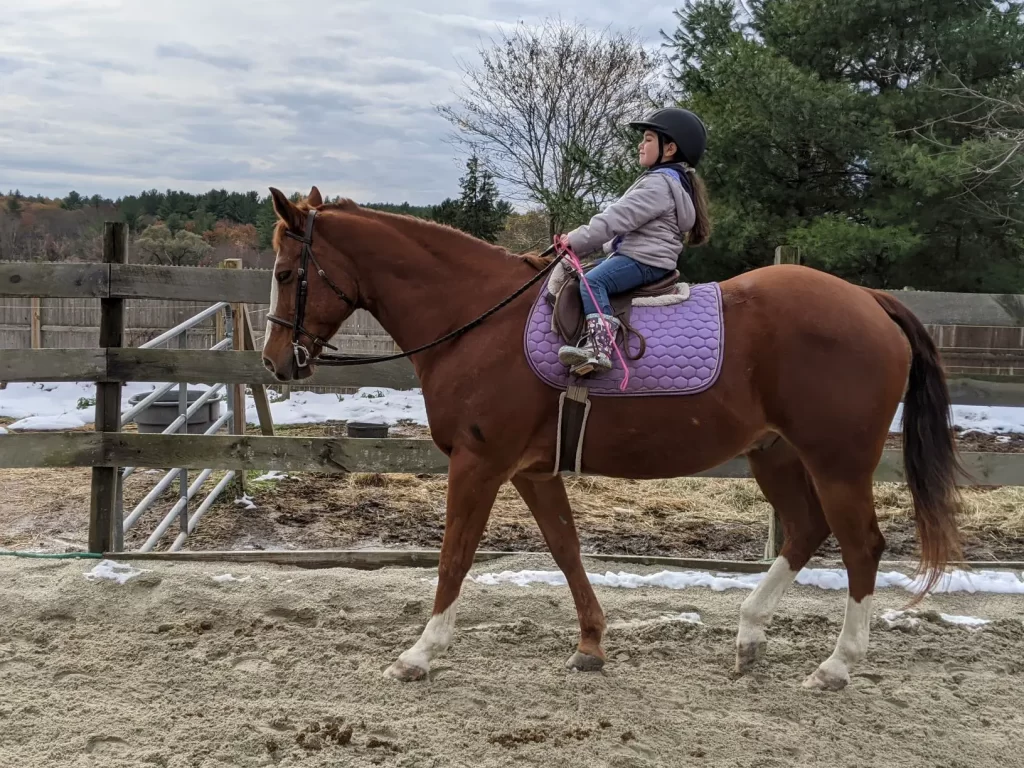
Benefits of Horseback Riding for Kids
Before delving into the process of choosing an instructor, it’s important to understand the numerous benefits horseback riding can offer to children. These benefits will not only influence the type of instructor you seek but also provide you with a deeper understanding of why horseback riding is a great activity for kids.
Development of Physical Strength and Coordination
Horseback riding engages many muscle groups and requires balance and coordination. As your child learns to ride, they will develop core strength, improve their posture, and enhance their overall physical fitness.
Improvement in Balance and Posture
Maintaining balance while riding a horse is crucial, and with time, your child will gain better balance and posture. Horseback riding also helps to strengthen the muscles responsible for maintaining proper alignment, leading to improved posture even off the saddle.
Enhancement of Cognitive Skills
Riding a horse requires focus, concentration, and the ability to quickly make decisions. The connection between horse and rider promotes mental stimulation, improves problem-solving skills, and enhances cognitive abilities in children.
Boost in Self-Confidence and Self-Esteem
Gaining control over a large and powerful animal can significantly boost a child’s self-confidence. As they master new riding skills and achieve goals, their self-esteem will grow, creating a positive impact on various aspects of their life.
Now that we understand the benefits of horseback riding, let’s dive into the process of choosing the right instructor for your child.
Qualities to Look for in a Horseback Riding Instructor
Finding the perfect instructor who can guide and mentor your child is essential for a successful equestrian journey. Consider the following qualities when evaluating potential instructors:
Experience and Qualifications
Check the instructor’s background and certifications to ensure they have the necessary knowledge and experience. Look for instructors who are certified by recognized equestrian organizations and who have a solid track record of teaching and riding.
Ability to Handle and Work with Kids
Working with young riders requires a unique set of skills. A great instructor should have the ability to connect with and understand children, making the learning process fun and engaging.
Patience and Communication Skills
Patience is key when teaching any new skill, especially to children. Seek an instructor who is patient, communicates clearly, and can adapt their teaching methods to suit your child’s learning style.
Safety Measures and Protocols
Safety should always be a top priority. Inquire about the instructor’s safety protocols, such as proper fitting of helmets and protective gear, emergency procedures, and their knowledge of first-aid.
Now that you know what to look for in an instructor, let’s discuss the process of understanding your child’s needs and goals.
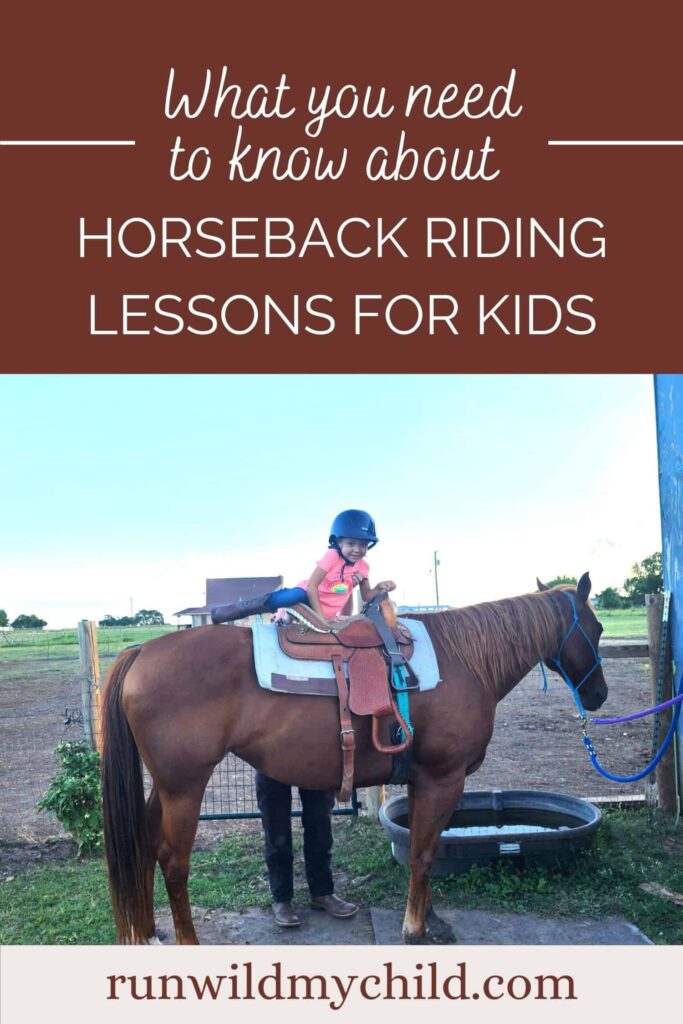
Understanding Your Child’s Needs
Before selecting an instructor, it’s important to understand your child’s age, skill level, and riding goals. This will help you find an instructor who can tailor their lessons to your child’s specific needs. Consider the following steps to assess your child’s requirements:
Assessing Your Child’s Age and Skill Level
Determine your child’s readiness for horseback riding based on their age and any prior experience they may have had with horses. Some instructors specialize in teaching younger children, while others may be better suited for older kids with more advanced riding skills.
Identifying Any Specific Requirements or Limitations
If your child has any physical or cognitive limitations, it’s important to find an instructor who can accommodate their needs. Discuss your child’s specific requirements with potential instructors to ensure they can provide a safe and inclusive riding experience.
Determining Your Child’s Riding Goals
Have a conversation with your child about their riding goals. Are they looking to ride for leisure, compete in shows, or pursue other equestrian disciplines? Finding an instructor who can nurture and guide your child towards their goals will greatly enhance their overall experience.
With a clear understanding of your child’s needs and goals, it’s time to research and shortlist potential instructors.
Researching and Shortlisting Potential Instructors
To find suitable horseback riding instructors, you’ll need to explore local riding schools and facilities, read reviews and testimonials, seek recommendations from other parents, and check for relevant certifications and affiliations. Consider the following steps:
Exploring Local Riding Schools and Facilities
Search for reputable riding schools and facilities in your area. Visit their websites, check for available programs, and familiarize yourself with their teaching philosophies.
Reading Reviews and Testimonials
Look for reviews and testimonials from current and former students. This will give you insights into the quality of instruction and the overall satisfaction level of their students.
Seeking Recommendations from Other Parents
Reach out to other parents who have children enrolled in riding lessons. Inquire about their experiences, ask for recommendations, and learn about any potential instructors to avoid.
Checking for Certification and Affiliations
Verify the instructor’s certifications, such as those from recognized equestrian organizations like the Certified Horsemanship Association (CHA) or the United States Dressage Federation (USDF). Affiliations with respected equestrian organizations indicate a commitment to professional standards.
Once you have a shortlist of potential instructors, it’s time to set up an initial meeting to learn more about them and their teaching methods.
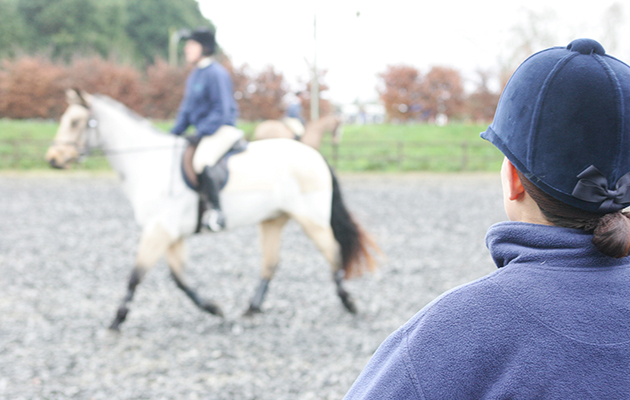
Setting Up an Initial Meeting
Contact the instructor to schedule an initial meeting. This will give you an opportunity to ask questions, discuss your child’s needs and expectations, and assess the instructor’s suitability. Here are some steps to follow:
Contacting the Instructor to Schedule a Meeting
Reach out to the instructor via email or phone to schedule a meeting. You can find their contact information on their website or by calling the riding school directly.
Preparing Questions to Ask
Prepare a list of questions to ask during the meeting. Consider asking about their experience, teaching methods, safety measures, horse selection process, and anything else that is important to you and your child.
Discussing Your Child’s Needs and Expectations
Take the time to share your child’s specific needs, goals, and any limitations or concerns you may have. A good instructor will take these into consideration when designing lesson plans and working with your child.
Now that you’ve set up an initial meeting, it’s important to closely observe a lesson or session to assess the instructor’s teaching style and interaction with the kids.
Observing a Lesson or Session
Attending a lesson or session as an observer will give you valuable insights into the instructor’s teaching style, approach, and how they interact with the children. Consider the following steps:
Attending a Group Lesson or Private Session
Ask the instructor if you can observe a group lesson or a private session. Observing a group lesson will give you an idea of how the instructor handles multiple riders, while a private session will showcase their one-on-one teaching abilities.
Noting the Instructor’s Teaching Style and Approach
Observe how the instructor communicates with the children and how they deliver instructions. Are they clear, patient, and encouraging? Do they adjust their teaching style based on each child’s needs?
Assessing the Instructor’s Interaction with the Kids
Pay attention to how the instructor interacts with the children during the lesson. Do they maintain a positive and supportive atmosphere? Are they attentive, actively listening, and offering constructive feedback?
With observation complete, it’s time to evaluate the instructor’s communication skills, especially in terms of clarity, active listening, and positive reinforcement.
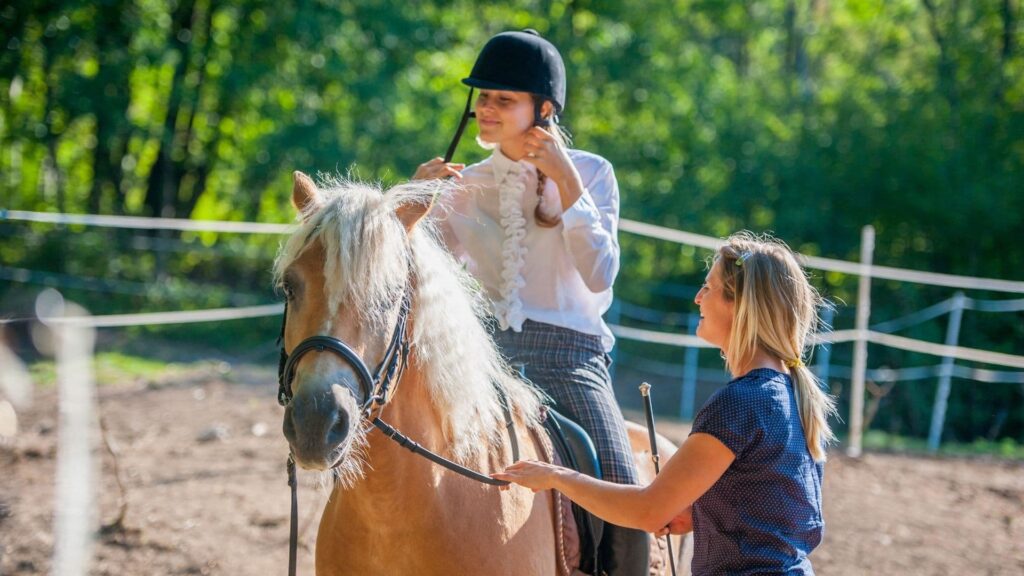
Assessing the Instructor’s Communication Skills
Strong communication skills are essential for any instructor. Focus on the clarity of their instructions, their ability to actively listen and understand the children’s concerns, and their use of positive reinforcement. Consider the following aspects:
Clear and Concise Instructions
Good instructors provide clear and concise instructions that are easily understood by the children. Ask yourself if the instructor’s directions are easy to follow and if they use appropriate language for the age group they are teaching.
Active Listening and Understanding
A great instructor should actively listen to their students, addressing their questions, concerns, and preferences. Observe if the instructor takes the time to understand the needs of each child and adjusts their teaching accordingly.
Encouragement and Positive Reinforcement
Children thrive when they receive encouragement and positive reinforcement. Evaluate if the instructor actively acknowledges and praises the children’s efforts, boosting their confidence and motivation.
As safety is of utmost importance in horseback riding, it’s essential to consider the instructor’s focus on safety measures and their knowledge of horse behavior.
Focus on Safety Measures
Safety should always be a top priority when engaging in any equestrian activity. Ensure that the instructor emphasizes safety and follows proper protocols. Consider the following aspects:
Proper Fitting of Helmets and Protective Gear
The instructor should ensure that every child wears a properly fitted helmet and suitable protective gear before getting on a horse. This showcases their commitment to the safety of their students.
Teaching Safety Rules and Precautions
Observe if the instructor takes the time to teach the children safety rules, such as mounting and dismounting techniques, how to handle the reins, and general behavior around horses.
Emergency Procedures and First-Aid Knowledge
Inquire about the instructor’s knowledge of emergency procedures and first-aid. Do they have a plan in place to handle emergencies? Are they proactive in ensuring a safe riding environment?
Observing the instructor’s handling of the horses will also provide valuable insight into their knowledge of horse behavior and their ability to match horses with riders.
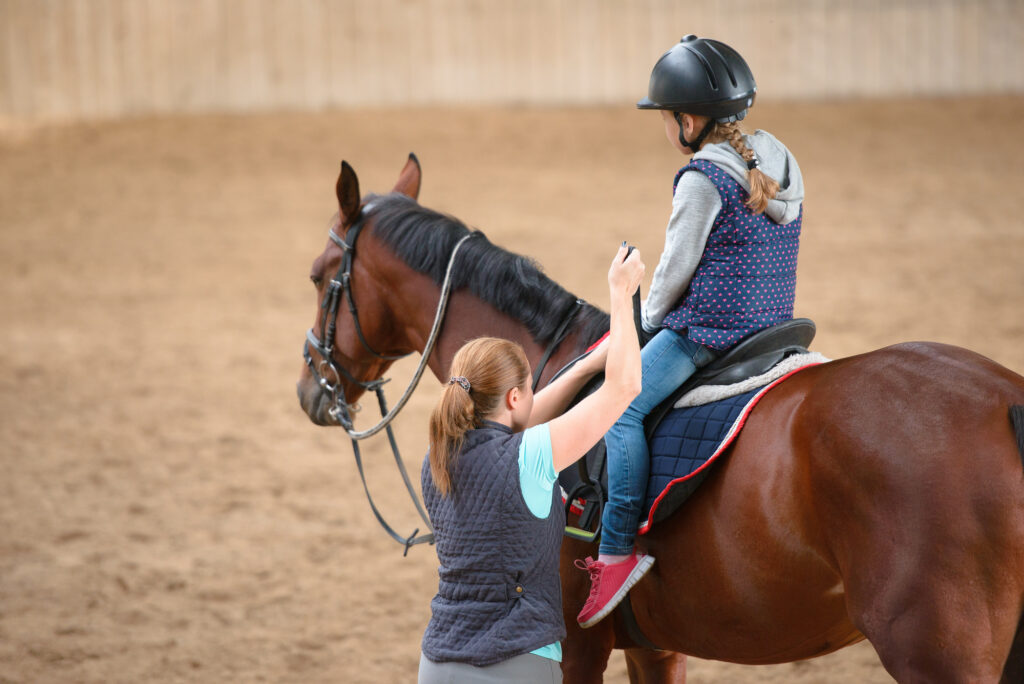
Evaluating the Instructor’s Handling of Horses
A skilled instructor should have a thorough understanding of horse behavior and be able to match horses with riders based on their skill level and temperament. Consider the following aspects:
Knowledge of Horse Behavior and Body Language
Observe how the instructor interacts with the horses. Do they demonstrate knowledge and awareness of horse behavior? Do they handle the horses with compassion and respect?
Ability to Match Horses with Riders
A good instructor should be able to match the appropriate horse with each rider, based on factors such as size, experience, and temperament. Assess if the instructor pays attention to these details during horse selection.
Compassion Towards the Animals
In addition to teaching riding skills, a good instructor should also instill empathy and compassion towards the horses in their students. Ensure that the instructor demonstrates kindness and respect towards the animals.
As your child progresses in their riding journey, they will benefit from diverse teaching methods and varied lesson plans. Consider the instructor’s ability to provide a well-rounded learning experience.
Considering the Instructor’s Teaching Methods
A well-rounded learning experience is essential to keep your child engaged and motivated. Evaluate if the instructor’s teaching methods align with your child’s needs. Consider the following factors:
Progression and Gradual Skill Development
A good instructor will have a lesson plan that progresses gradually, ensuring that each skill is mastered before moving on to the next. Observe if the instructor follows a logical progression in their teaching.
Variety in Lesson Plans and Activities
To prevent boredom and maintain interest, an effective instructor will incorporate a variety of lesson plans and activities. Determine if the instructor offers a mix of mounted and unmounted exercises to keep the learning experience engaging.
Integration of Theory and Practical Learning
Horseback riding involves both theoretical knowledge and practical skills. Assess if the instructor incorporates theory lessons, such as horse care and stable management, alongside practical riding lessons.
The learning environment also plays a crucial role in your child’s overall experience. Consider the cleanliness, organization, and positive atmosphere of the stable or arena.
Assessing the Learning Environment
The learning environment directly impacts your child’s riding experience. Consider the following aspects when evaluating the stable or arena:
Cleanliness and Organization of the Stable or Arena
A clean and organized stable or arena indicates a well-maintained facility and a focus on the overall safety and comfort of the riders and horses.
Well-Maintained and Suitable Horses and Equipment
Take note of the condition of the horses and equipment. Well-cared-for horses and properly maintained equipment demonstrate the instructor’s commitment to the welfare of their horses and the riders.
Positive and Supportive Atmosphere
A positive and supportive atmosphere is crucial for a child’s riding experience. Observe the interactions between staff, instructors, and students to ensure that it is welcoming and encouraging.
Talking to other students and parents can provide valuable insights and help you make an informed decision about the instructor and their program.
Talking to Other Students and Parents
Engaging in conversations with current students and their parents can provide you with valuable feedback and opinions about the instructor and their teaching methods. Consider the following steps:
Gaining Feedback and Opinions from Current Students
Speak to current students about their experience with the instructor. Ask about their progress, their overall satisfaction, and any concerns or issues they may have encountered.
Discussing Experiences with Other Parents
Connect with other parents whose children are enrolled in riding lessons. Inquire about their thoughts on the instructor, the quality of instruction, and the overall experience for their child.
Inquiring About the Overall Satisfaction Level
Ask both students and parents about their overall satisfaction with the instructor and their program. Understanding their experiences will help you make a well-rounded assessment.
Cost and convenience are additional factors to consider when selecting an instructor. Explore lesson fees, assess the proximity and accessibility of the facility, and check if their lesson times align with your schedule.
Considering Cost and Convenience Factors
While cost should not be the sole determining factor, it is essential to consider when choosing an instructor. Evaluate the following factors before making a final decision:
Comparing Lesson Fees and Payment Options
Compare lesson fees among riding schools to ensure you are getting good value for your money. Inquire about payment options, such as packages or discounts for long-term commitments.
Assessing the Proximity and Accessibility of the Facility
Consider the location of the facility and how easily accessible it is for you and your child. Long travel distances may become inconvenient and can potentially affect your child’s enthusiasm for riding.
Availability of Lesson Times That Fit Your Schedule
Check if the instructor offers lesson times that align with your schedule. Remember that regular and consistent lessons contribute to better progress and skill development.
In conclusion, choosing the right horseback riding instructor for your child requires careful research and consideration. By assessing their experience, qualifications, communication skills, teaching methods, and safety measures, you can ensure a positive and enriching experience for your child. Selecting the right instructor will set the foundation for their journey into horseback riding, fostering a lifelong love for these magnificent animals.
Remember to prioritize your child’s needs, goals, and safety as you embark on this exciting equestrian adventure. With the right instructor by their side, your child will develop valuable skills, build self-confidence, and create lasting memories in the world of horseback riding. So begin your search today and let your child’s equestrian dreams soar!
